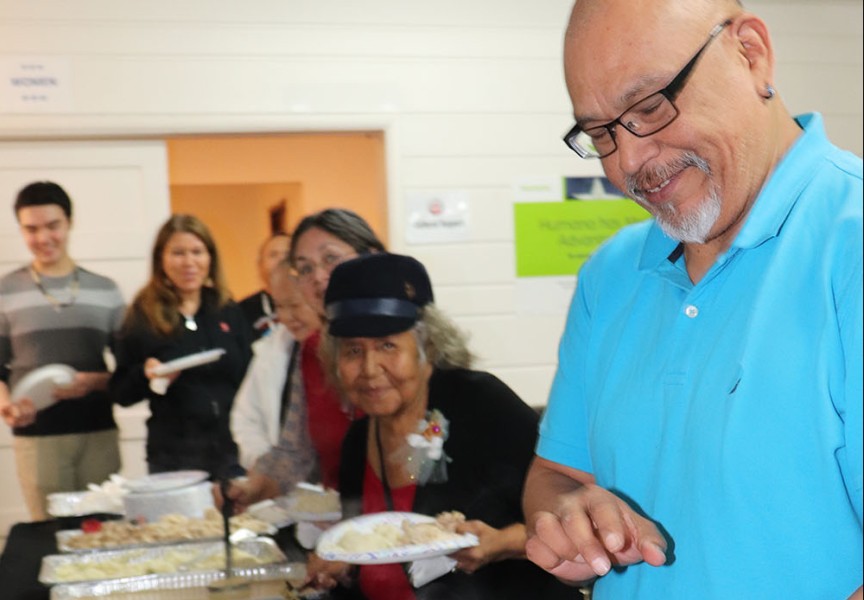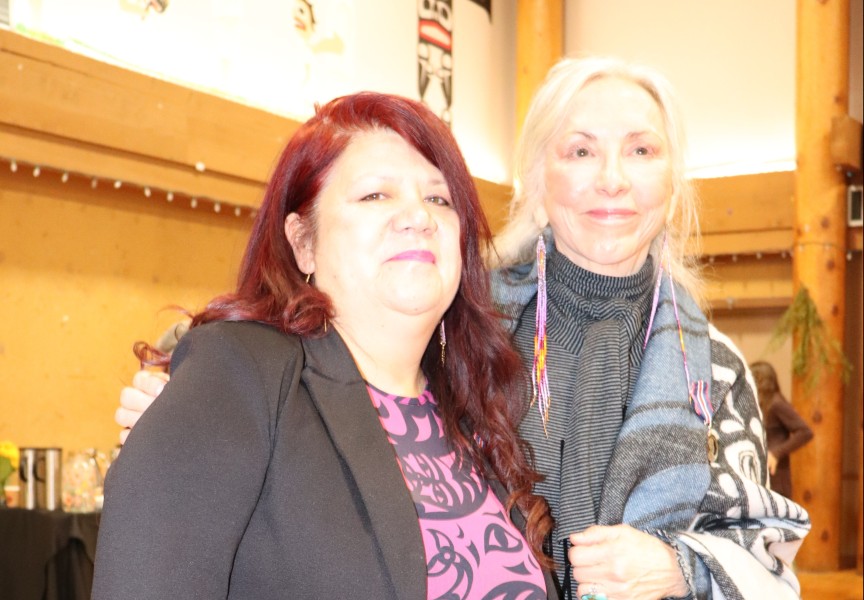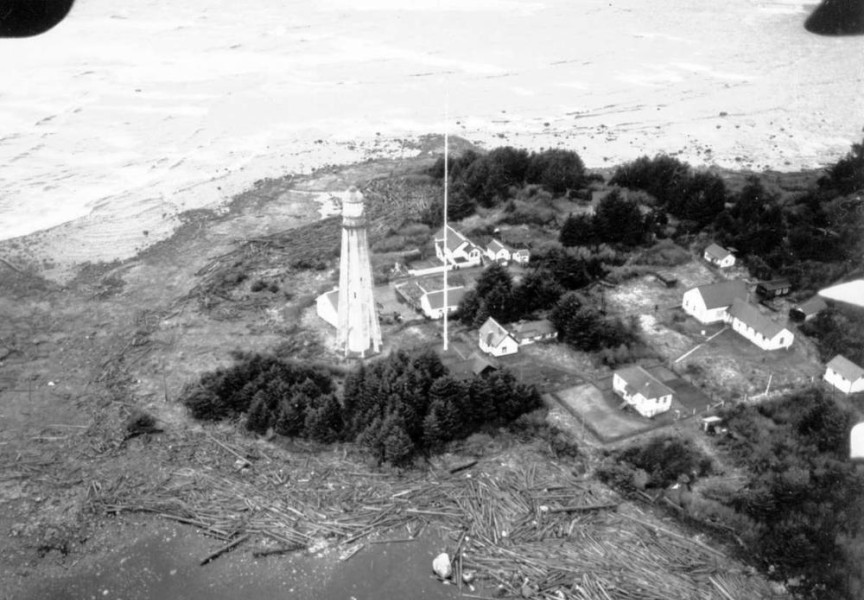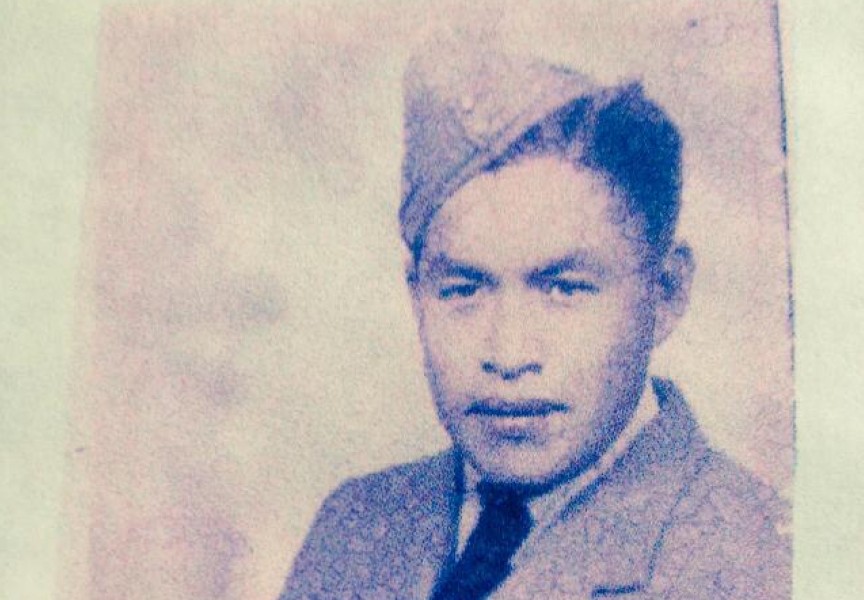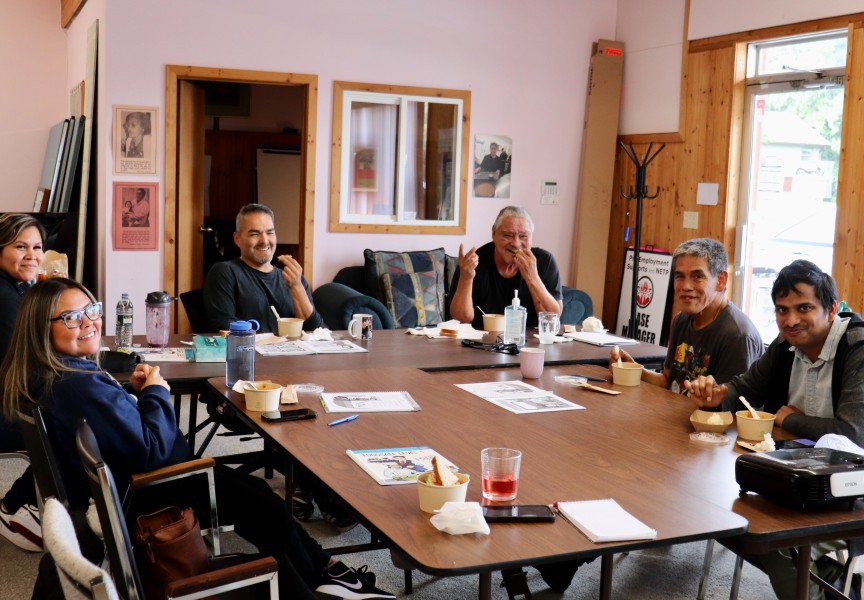Hupacasath Chief Councillor Shaunee Casavant says “it’s absolutely terrific” that the Alberni-Clayoquot Regional District is giving the Department of Fisheries and Ocean (DF0) a dressing down for its mismanagement of this year’s Somass sockeye run.
In a letter to federal Fisheries Minister Gail Shea Aug. 11, Regional District Chair Hira Chopra called for a resolution to the “long-running disagreement” over the formula by which the Hupacasath and Tseshaht First Nations are allocated a commercial catch.
Fixing that formula should have been a top priority for DFO prior to this year’s record return of sockeye, wrote Chopra, but because the formula was not given the required attention, the economy in the regional district took a significant hit.
Tony Bennett, regional district director for area “C” (Long Beach), brought the issue before his fellow directors because of the heightened rhetoric he was hearing from DFO surrounding First Nations’ roadside sale of fish.
He told Ha-Shilth-Sa it was the kind if “almost slanderous rhetoric” heard more than 20 years ago. He was particularly concerned about the tone of the discussion in local newspapers around food safety, as if the product the First Nations were selling was “dirty fish”, not properly treated.
If there was a concern around safety, DFO could have discussed and worked in concert with the First Nations to resolve that issue, he said. Instead, what might have been a legitimate concern was exploited.
He also called the DFO’s seizure of the catch of the Hesquiaht seiner The Princess Colleen antagonistic. The Princess Colleen was fishing the sockeye run in Ucluelet’s Alberni Inlet territory for Nuu-chah-nulth nations’ food fish allocations.
“It shouldn’t have happened,” said Bennett, considering that the abundant run would have choked out the river systems had the fish passed into them. “There were more fish than we’ve seen in years,” added Bennett.
Today is a different time, he said, with court decisions that have recognized First Nations rights to a commercial market, and relationship building that has changed the seascape on fish sales forever.
Or should have the management of the unprecedented numbers of sockeye returning this year could have been done much better, he told the directors. The director’s response was unanimous support of the First Nations’ position.
There was “huge recognition” from Port Alberni Mayor Ken McRae regarding the economic losses seen in the city because the fish were shipped out of the region with the transient commercial fleet, rather than kept at home benefiting First Nations, said Bennett.
The district has calculated that a First Nations catch of 100,000 pieces of sockeye translates into a $3-million economic benefit to the region, a benefit that is particularly important to Alberni-Clayoquot, which “consistently ranks among the lowest of all British Columbia districts when socio-economic indices are measured,” the letter reads.
Bennett said it’s recognized that dollars from a First Nations fishery goes back into the local economy. The boats are bought locally, the motors. Grocery and retail businesses benefit.
“The Somass salmon fisheries are one of the best opportunities the local First Nations currently have to leverage for economic benefit,” wrote Chopra. “Our communities [Port Alberni, Tofino, Ucluelet and Bamfield] can in turn derive significant economic benefit from the fisheries as the First Nations members spend locally.”
The letter states that while Hupacasath and Tseshaht re-invest the revenues generated by the Somass fisheries into resource management and enhancement activities, watershed stewardship, fish habitat restoration, stock assessment and such, the same cannot be said for commercial interests that live outside the region.
“Virtually no local benefit is experienced from the commercial fishery as most seiners and gillnetters are based elsewhere, arrive just in time for their respective openings and depart as soon as they have their quotas.”
Casavant said it’s telling that First Nations are starting to see this kind of support in the wider community. She believes the district is beginning to understand the frustration that First Nations have experienced as they watch their resources leave the territory without any benefit at home.
She’s hopeful that, as the greater community speaks out about the injustice of that practice, it will wake up Ottawa to a simple fact: When First Nations do better economically, the larger community does better.
The regional district said the policy, which dictates that First Nations cannot have economic access to the Somass salmon unless there is a mainstream commercial opportunity for the same fish, should be revised.
Chopra and the district directors want to see a declaration made by DFO that the allocation issue will be resolved “in a ‘win-win- manner” before the end of the calendar year.
Casavant said she has received a commitment from the local DFO that, come October, they will sit down with Hupacasath to discuss how next year’s sockeye fishery will play out.
Despite disappointment that DFO walked away from a negotiated commercial agreement with the First Nation this year, Casavant said she must remain optimistic.
She said the nation operates from a very strong perspective: ‘Thank you very much, but we have our own management plan.’ She said that the plan is sensible one, with conservation and sustainability concerns kept top of mind.
Casavant said the situation this year was discouraging, in that the relationship between the local DFO and Hupacasath went from being very positive, with negotiations leading toward a commercial fisheries agreement, to things falling apart, and in the end DFO not speaking with the nation at all.
She cites engrained attitudes higher up within the DFO bureaucracy that have historically been more about retaining power and control than about managing fish to the benefit of the local populations.
She said the decisions that come down the chain from Ottawa to the DFO in the region create a tension that doesn’t need to exist.
Chopra and the district seem to agree.
“Ottawa’s positions on these matters... put local DFO staff in an extremely uncomfortable situation when they are tasked with explaining and enforcing the position.”
Bennett said that there are generally good relations on fisheries issues locally, so it must be frustrating in some cases to deal with the policy directives from Ottawa that make no sense on the ground in the region.
Chopra notes too some hypocrisy in the way Canada goes about its business at home in regard to fisheries management compared to what it promotes internationally.
“We find the situation ironic, when we are aware that the government of Canada is funding and promoting indigenous non-industrial scale fisheries in developing countries because they recognize the rights of traditional harvesters there. That is the opposite of what is being done here.”
Casavant said there is a huge disconnect between what Canada says, and what it does. She said Canada has an international reputation for being generous and helpful, and yet it doesn’t operate that way in its own backyard.
Casavant said she called Chopra to thank him personally for sending the letter to Minister Shea. The Nuu-chah-nulth Tribal Council Board of Directors has recently appointed Casavant to represent them on the regional district board and she’s excited about the opportunity.
She said she has attended a number of the meetings and found the regional district members to be very thoughtful and generally onside with the Nuu-chah-nulth on many issues.
In fact, she’s noting a more respectful tone around many local tables. People are coming to the discussion with open minds and in a spirit of cooperation.
“All we’ve got is us,” said Casavant, and what is smart and constructive is working together for the benefit of all the people in the district.
By Debora Steel


